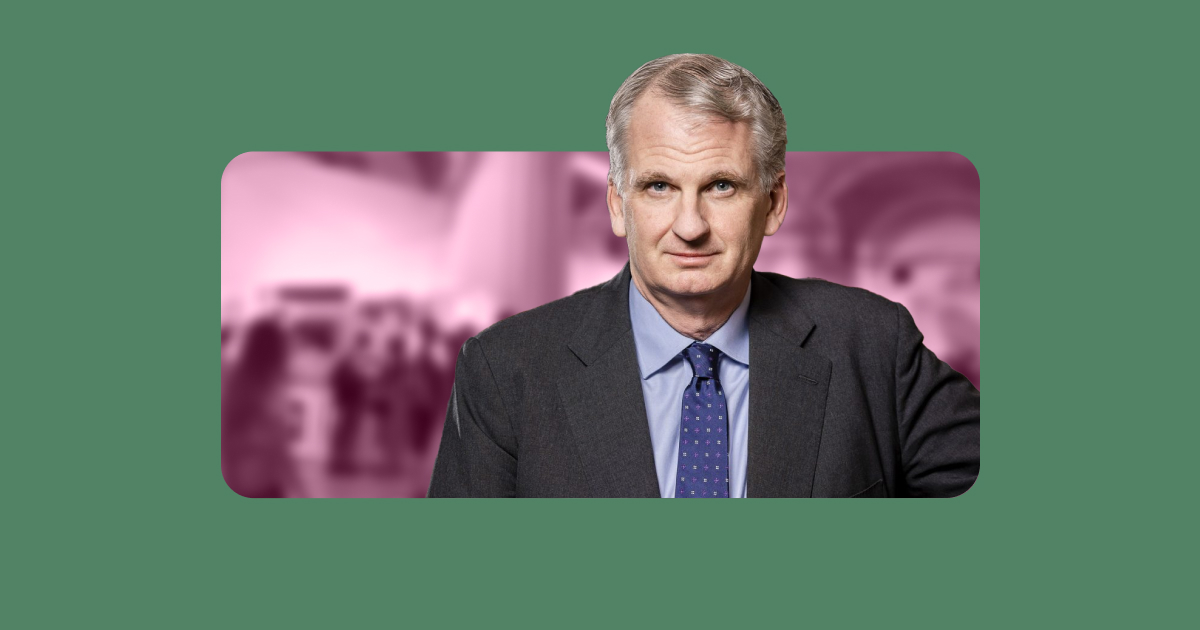"Why does freedom matter the most?" — Timothy Snyder at the Book Arsenal

Timothy D. Snyder is an American historian, lecturer at Yale University, and researcher of the history of Central and Eastern Europe. He is called a "great friend of Ukraine," and he is convinced that the only possible way to end the Russian-Ukrainian war is to ensure Ukraine's absolute victory. That is why the professor is an ambassador of the UNITED24 platform and helps raise funds for drones for the Ukrainian army.
During Russia's full-scale invasion of Ukraine, his work "The Road to Unfreedom: Russia, Europe, America," where he explores the transformation of the world in 2011-2016, became a bestseller in Ukraine.
For five years now, Timothy Snyder has been working on a philosophical book, the main category of which is the concept of "freedom." He hasn't finished this book yet, but during this year's Book Arsenal, he presented some of his work and gave a lecture entitled "Why does freedom mean the most?" Svidomi highlighted the main points.
Freedom is what makes values possible
Freedom should be the highest value, more important than anything else. It is this value that makes it possible for other values to develop.
Freedom is the state in which people can think, balance, and combine values, regardless of what kind of values we are talking about. They may be different: one person's values may differ from another's; one person may profess one thing this year and another next year.
Regardless of what these values are, freedom is a kind of meta-value. Freedom is what makes all other values possible. By the word "value" I do not mean something very complicated. I am talking only about those positive things to which we are committed. For example, loyalty, honesty, patriotism, universalism, justice, or compassion.
Values are as real as objects. A dam is an object, but its destruction has consequences not only for the material world. It also changes the world of values. We do not live only as objects. We live through experiences and the values we attach to those experiences.
In the 21st century, many people who talk about freedom believe that there are no values. This can be seen in the political rhetoric of Russia, whose propaganda begins with the idea that values do not exist, they are not real. Russian propagandists assume that the only thing people should believe in is power.
When people say that they are not sure whether there is something we can value or whether there is something real, it leads to tyranny. As soon as we question the authenticity of values, we are on the path to a lack of freedom.
When "nothing matters," then power becomes important. Those people who control the power will win.
If we believe in only one value or that there are no values at all, this is the path to tyranny. Freedom is the highest value that allows all other values to exist.
Freedom and security work together
In discussions about freedom, societies make mistakes that can become political traps. One such mistake is the claim that freedom must be sacrificed for security.
This is fundamentally wrong. If we accept the logic that we need to sacrifice freedom for security, then what do we do? We are paving the way for leaders like Putin, who will make people feel less secure and use this as an argument for taking away even more freedom.
Freedom and security work together. Freedom is not simply the absence of pressure or oppression. Freedom is about being able to live in a way that allows us to stand up for our values, so that we, each in our own place, can change the world. Positive freedom means we see the future and what it should look like.
Freedom is about making difficult decisions
Another mistake people make when they talk about freedom is to think that freedom is about giving in to impulses, about doing whatever they want. There is a certain paradox here.
When I spoke to Zelenskyy about his decision to stay in Kyiv in February 2022, he said: "I felt I could do nothing else." That is, he felt he had no other choice. It may seem that he was not free because he had no choice. But this is the opposite case.
The nature of freedom is such that it will lead us to situations in which it seems that there is no choice. If everyone gave in to impulses, they would run away. If everyone gave in to impulses, they would do what is easiest. But many Ukrainians do what is more difficult.
For democracy to exist and flourish, people need to believe that democracy is the right system of government. For this to happen, people need to see themselves as free people, ready to take risks and make decisions.
If democracy is about governance by people, then it is not about just anybody but about free people who make decisions. These are people who do not believe that everything is decided for them.
A free person realises that there is no perfect choice. They take responsibility for every choice, while an unfree person does not take this responsibility.


